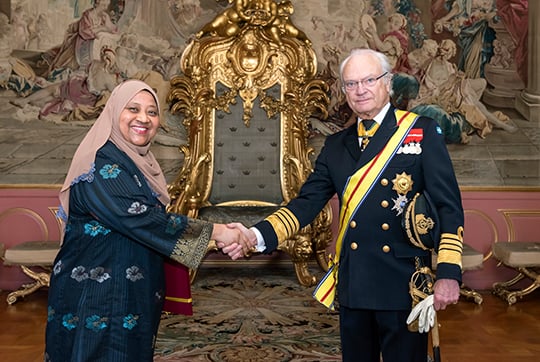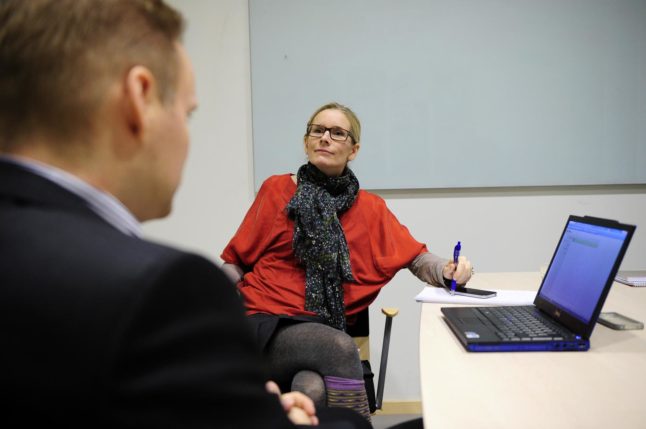“It’s been a good four years. I’ve got to know Scandinavia quite well,” says Taib, a career diplomat with a career spanning almost three decades, speaking to The Local’s Sweden in Focus podcast just before finishing her tenure as Malaysia’s ambassador to Sweden, Denmark and Norway.
Sweden and Malaysia have enjoyed diplomatic relations since 1958, the year after the Southeast Asian country gained its independence from the British Empire.
“I always say that Sweden is our development partner. Malaysia is now a high-middle income country, and much of our development is due to investments and trade by countries like Sweden. So Sweden is very much present in Malaysia,” says Taib.
The Malaysian community in Sweden is small, but close-knit. In 2021 around 1,800 people born in Malaysia were living in Sweden, according to Statistics Sweden.
“There are about 100 Swedish companies in Malaysia. Many of the Malaysians here came to work for these companies in Sweden and decided to stay on. And some came for love, they got married, settled down here and raised their families,” says Taib.
“There are professionals, engineers, accountants, doctors. They are business owners, and those working in the service industry, and also in civil society. So it’s quite a mix.”
Before the pandemic, Malaysia used to welcome tens of thousands of Swedish tourists every year, as well as students, and Taib says she would love for those numbers to increase now that the country has lifted pandemic restrictions – just as she would like to see Sweden climb from its current position as Malaysia’s 45th biggest trading partner.
“We import a lot of machinery and that kind of equipment from Sweden, and we export palm oil products, electronic products and rubber products. We’ve had a lot of trade exchanges over the years, but not as much as we would like to,” she says.
Taib explains that although Malaysia enjoys a well-developed welfare system, it is not as comprehensive as that of Sweden, where the flexibility of working life as well as the social safety net enabled many to work from home during the pandemic.
“I think that’s something Sweden is very much a leader in. It’s a model to look at. Of course our countries are different in the sense that our population is 32 million, so we cannot adopt everything from here, but there’s definitely a lot to aspire to,” she says.
LISTEN: Malaysia’s ambassador Nur Ashikin Mohd Taib reflects on her four years in Sweden
Listen & Follow: Apple | Spotify | Google
One particular area in which the two countries differ is in terms of hierarchy.
In Sweden people normally call each other by their first name, regardless of whether it’s a friend, an uncle or a manager, which Taib says isn’t the case in most Asian cultures. But the lack of clear markers of showing respect to seniors doesn’t mean Swedes are rude – in fact she’s found them surprisingly warm.
“One of the things that I find very interesting here is the egalitarian kind of social space. And the fika culture! I didn’t think that that would be something that the Swedes would do, because the stereotype of Swedes is that people are distant and cold. But the fika culture is a good way of socialising in the office and with friends. It’s very friendly.”
Taib was also surprised by how often Swedes prefer to do things themselves rather than hiring someone to do it, such as home improvement – or even haircuts.
“After living here for a while we realised why we see so many hardware stores and all that, and I think it’s the cost of living, it’s because the labour charges are very high. My husband goes bald, because he says it’s the most cost effective,” she laughs.
Interview by Paul O’Mahony and article written by Emma Löfgren



 Please whitelist us to continue reading.
Please whitelist us to continue reading.
Member comments